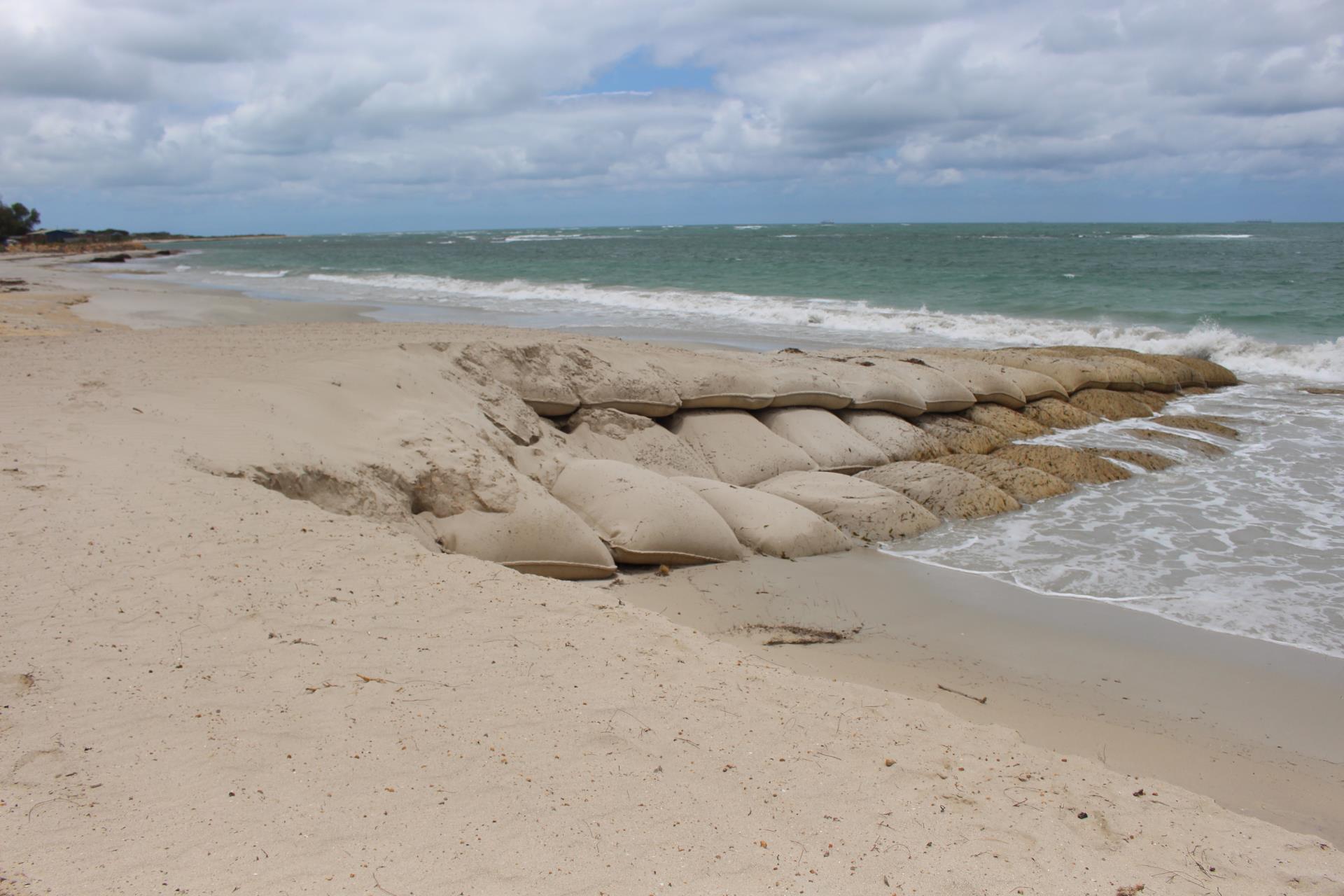Published on Thursday, 20 December 2018 at 8:30:37 AM
The construction of two low-crest groynes at the Whitehill Road designed to retain sand at the foreshore and reduce reliance on temporary sand nourishment have been completed.
City of Greater Geraldton Mayor Shane Van Styn said installation of the two 40m long Geotextile Sand Container (GSC) groynes are consistent with community values and the City’s Coastal Hazard Risk Management and Adaptation Plan (CHRMAP) Report which aligns with Western Australia's State Planning Policy No. 2.6 – State Coastal Planning Policy (SPP2.6).
“During the development of the Geraldton CHRMAP the community told us loud and clear that the beaches at Drummond Cove are highly valued for social and recreational purposes,” he said.
“Therefore, the decision to build two GSC groynes that extend across the beach and into the ocean serves the dual purpose of trapping sand and maintaining the beach for community use.
“By utilising GSCs, they can be easily removed should they no longer be needed in the future.”
Now that coastal works are completed, the City is working with the community to improve the coastal reserve.
“The City has received a request from the Drummond Cove Progress Association to replace the fences with bollards and return amenities such as shade shelters to the reserve that were removed due to coastal erosion,” Mayor Van Styn said.
“The City will continue closely working with the local community to ensure the best outcomes for local residents are achieved.”
Construction of the $250,000 groynes was undertaken by local contractor Red Dust Holdings with MP Rogers and Associated providing technical services. The project was funded via the City’s Coastal Adaptation Measures budget.
PICTURE CAPTION:
Two Geotextile Sand Container groynes have been constructed at Whitehill Road in Drummond Cove to mitigate coastal erosion.

Back to All News